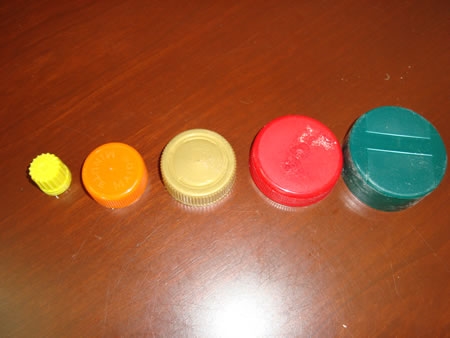Fennel tea has been known for a long time as a remedy for baby's digestive problems. Fennel is a mineral-rich herb that is used for more than just a kitchen spice. Its medicinal qualities have been recognized by manufacturers of herbal formula for children. What is the characteristic of fennel useful properties and contraindications for infants, this article will tell.

Fennel tea
Properties of fennel tea
Fennel, or pharmaceutical dill, is a biennial herb originating from the Mediterranean. It is grown in many countries in Asia and Europe. For medicinal purposes, fennel seeds are mainly used. To maximize its benefits, harvest takes place in September. Ripe seeds contain up to 6% essential oil, flavonoids (antioxidants), mineral salts, many vitamins, calcium, iron, amino acids.

Fennel plant
The plant has a number of proven beneficial properties:
- Relaxes the smooth muscles of the gastrointestinal tract, which causes its benefits in digestive disorders, stomach and intestinal cramps;
- Promotes the waste of gases;
- Works as a diuretic;
- Increases the volume of bronchial secretions and simultaneously reduces its density, which is important for respiratory tract infections;
- Helps with urinary tract infections;
- It has antimicrobial and calming effects.
Important! In infants, tea with fennel will help relieve pain from intestinal colic, promote phlegm release in case of inflammation of the respiratory tract. Before using it, you must consult a pediatrician.
How is fennel sold?
On sale you can find ready-made teas only from fennel and herbal preparations with this plant in the composition. They are produced, including by firms specializing in the production of food for newborns.
Pharmacy fee
Pharmacies sell fennel seeds or ready-made teas and teas for babies. They are presented in tea bags for brewing or packaged in boxes as dry plant materials. There are also special drugs such as Plantex. This product comes in granules containing seed extract along with essential oil.

Fennel seeds
Shop tea
Fennel tea for newborns is sold, as a rule, in specialized stores or departments in supermarkets dedicated to the sale of baby food.
The most popular brands are “Hipp”, “Bebivita”, “Fleur Alpine”, “Humana”, “Babushkino Lukoshko”. Release form - in granules and sachets. Usually fennel tea for newborns does not contain sugar and sweeteners. The company "Hipp" produces fennel tea with natural apple. Sucrose or dextrose (monosaccharide, d-glucose) is often added to granulated teas.

Ready tea bags
Age to start using tea
Fennel tea, along with chamomile tea, is considered one of the safest for babies. However, you still need to give it with caution.
Important! Fennel tea for newborns usually indicates the age from which it is recommended to take it.
Breastfeeding
Breastfed babies are generally not advised to consume additional fluids, including teas. A drink with fennel is introduced into the diet, starting from 6 months, simultaneously with complementary foods. However, if the infant has problems with stool and colic, then you can give fennel tea earlier, starting carefully, one teaspoon per day, gradually bringing the dose to 100 ml.
Important! Most manufacturers, based on pediatrician recommendations, advise giving the drink after 1 month.
Bottle-fed
Babies who use formula milk are more likely to have digestive problems. Therefore, experts recommend them to give tea from 4 months, in the presence of constipation and colic - from a month.
Can I use it for newborns
It is not recommended to use fennel tea for newborns without urgent need, as it has not only positive, but also negative properties. However, to facilitate digestion, in some cases, you can give your child a drink after 2 weeks of age. You must first consult a pediatrician.
Why give your baby fennel tea
The purposes of using the drink are determined by its beneficial properties.
Calming effect
Fennel contains B vitamins, which are involved in maintaining the normal functioning of the nervous system. The drink has a calming effect on the baby, relieving muscle tension and promoting sleep.
With colic
One of the biggest problems that parents have to deal with in the first months of a baby's life is stomach cramps. An effective remedy for them has not yet been invented, but there are methods of relief. Among them is to give the baby fennel tea.

Kid drinks tea from a bottle
It is recommended for improving digestion and solving problems with bowel movements. Fennel has a relaxing effect, reducing the tone of the smooth muscles of the intestine, increasing its peristaltic movements and accelerating the secretion of digestive juices.
Important! Fennel tea has been shown to reduce cramps, relieve symptoms of abdominal pain, help remove and neutralize gas.
Sometimes the drink is supplemented with additional ingredients that enhance the health benefits. One of them is cumin.
With a cold
The plant has the ability to liquefy and remove phlegm, which will be very useful for colds in the respiratory tract. In addition, its bactericidal properties help to effectively fight the common cold, quickly relieving its symptoms. The body's resistance to infectious diseases is provided by the vitamin C contained in fennel.
Red throat
When a baby has a red throat, these may be signs of inflammation caused by bacterial or viral infections, sometimes fungal infections (stomatitis, thrush). Since fennel has anti-inflammatory and antimicrobial properties, tea based on it will help in this case.
The correct preparation of the drink
In order to use fennel tea for newborns as efficiently as possible and at the same time not harm the baby, you must follow the instructions for brewing the drink and observe the dosage.
If the tea is already in bags or in the form of a dry mixture, then the box usually indicates how to prepare it correctly. Since the seeds of the plant have the greatest healing effect, you can purchase them at the pharmacy and make your own drink from natural raw materials. Basically, two methods are used: making tea and decoction. Parents choose which one is preferable.

Making tea in a bag
Tea
Making tea from seeds:
- Crush 1/2 tsp. seeds in a mortar. This is the best grinding method as it releases essential oils most effectively. The drink will have a pleasant taste and aroma;
- Pour the seeds with a glass of slightly cooled boiling water (to about a temperature of 90 degrees);
Important! Boiling water can slightly reduce the beneficial effects of the herbal drink.
- Leave to stand for 15-20 minutes.
The cooled and strained drink should be given to the baby before feeding: first a teaspoon, observing the body's reaction, then carefully adjust the dose to 100-150 ml per day.

Making fennel seed tea
Decoction
Decoction recipe:
- Crush one teaspoon of seeds in a mortar and pour a glass of boiling water;
- Boil for 2 minutes;
- Leave to brew for 10-15 minutes;
- Strain and after cooling give the baby. The total amount is 2 to 3 teaspoons per day.
Can fennel tea be harmful
Important! Do not administer fennel tea to a newborn on your own. A doctor's consultation is required.
Fennel can cause allergies in some babies, so the drink is started with small doses. It also cannot be used by children with epilepsy.
In addition to its many health benefits, fennel seeds contain the substance estragole, which is harmful in large quantities. Already in 2001, it was recognized as carcinogenic and genotoxic, that is, capable of modifying cell DNA. Further studies have confirmed this and found that estragole is contained in a fairly high concentration in the plant and in drinks from it.
As a result, the theory of the carcinogenicity of fennel tea has spread in recent years. However, the truth is that in animal experiments, isolated and purified estragole was used.
In humans, when the herbal drink is consumed, estragol is absorbed into the body as a component, along with flavonoids and anethole, which counterbalance the possible side effects of pure estragol. It is found in the beverage in an extremely complex phytochemical form. Conclusions based on research conducted on the isolated component are partial and imprecise.
Important! Recent studies have shown that the activity of pure estragol is neutralized by many other substances contained in the infusion.
Allergy and its symptoms
The main reason fennel tea can be harmful is because of allergies. The essential oil of the plant contains allergens and can provoke negative reactions:
- the most common symptom is skin rashes;
- the smell of fennel causes lacrimation, allergic rhinitis.

Skin rashes in an infant
Important! If you have allergy symptoms, you cannot give fennel tea to babies.
As with everything else, it's best not to overdo it with fennel tea, especially for the little ones. Although this drink has many beneficial properties, it is best to consult a pediatrician before using it.



